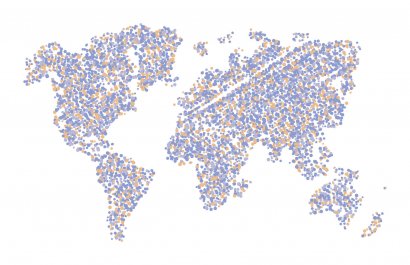 Human beings need to understand their surroundings and at the same time seek solutions to the problems that arise. To do this, create explanations that are convincing and that serve to face challenges of all kinds. There are many possible explanations of reality (spiritual forces, mythological visions, or the acceptance of an idea as valid because it appears to be satisfactory). However, the most widely accepted explanation today is the scientific one, which is presented through a scientific theory.
Human beings need to understand their surroundings and at the same time seek solutions to the problems that arise. To do this, create explanations that are convincing and that serve to face challenges of all kinds. There are many possible explanations of reality (spiritual forces, mythological visions, or the acceptance of an idea as valid because it appears to be satisfactory). However, the most widely accepted explanation today is the scientific one, which is presented through a scientific theory.
A scientific theory is a set of laws, facts and hypotheses that constitute a complete vision about an aspect of reality. The theory of evolution, relativity or cell theory are examples of conceptions of a scientific nature that are considered as a theory.
A scientific theory allows explaining a series of phenomena in an objective way, subsequently the phenomena must be understood in all their dimensions and, finally, explanation and understanding allow predictions to be made.
Relevant aspects in relation to the concept of scientific theory
The scientific method becomes the way by which a researcher presents an explanation of some facts. At present the most accepted method in most sciences is the hypothetico-deductive. All scientific theory involves the use of a research method.
Scientific theory is basically explanatory, but it must be borne in mind that there are different forms of explanation: the deductive type, the one based on probability, the functional explanation or the one that is based on the origin of something, its genesis (each science leans towards one kind of explanation or another).
- The technical and methodological requirements of scientific theories are useful to define what is science and what is not. Do not forget that some theories are presented as scientific but do not meet the conditions to be so (they are pseudoscientific theories).
- The concept of scientific theory is associated with the infallibility of the scientific method, permanent progress and the objectivity of science. This image is questioned by some thinkers, who recall that throughout history scientific theories have succeeded one another and, consequently, their claim to truth was limited to a specific time (if current theories deny the previous ones, it is logical to think that theories of the future will also be opposed to those of the present).
To illustrate this idea, we can recall a historical case of great importance: the heliocentric theory of the universe replaced the geocentric theory and the change from one model to another was very slow and conflictive (for a long period of time the two theories were positions rivals until the heliocentric vision was imposed as a new paradigm).
Photo: iStock - choja









